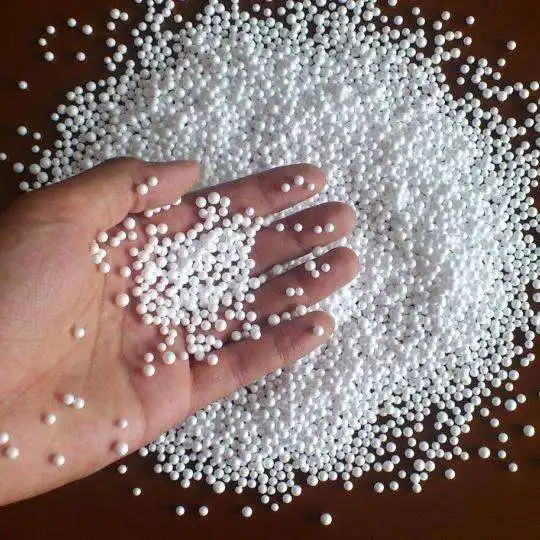PS (Polystyrene)

Polystyrene, commonly known as polyphenylene, is a polymer composed of styrene molecules that repeat themselves. It may be reused since it is a thermoplastic polymer, which melts and softens under heat. It is resistant to substances like bases and acids and works well as an electrical insulator. The absence of crystalline configurations in the styrene molecules makes solid polystyrene transparent. The material is weakly UV-resistant and brittle. Moreover, the polymer starts to soften before melting at a comparatively low glass transition temperature of 100ºC. With recycling code number 6, polystyrene is a material that may be melted and used in a variety of ways.
To create polymers with better qualities, polystyrene is typically co-polymerized with additional substances. To make Poly (styrene-co-methyl methacrylate), or PSMMA, for instance, polystyrene is mixed with methyl methacrylate. The end product is a polymer with improved chemical and UV resistance and clarity. The co-polymerization of acrylonitrile and butadiene with polystyrene yields Acrylonitrile Butadiene Styrene (ABS), another widely used plastic. Because of this, ABS has excellent dimensional stability, weldability, moldability, and tensile strength.
Application
Appliances, healthcare items, and automobile components are among the items that employ polystyrene. While its rigid form is employed for housings and casings, polystyrene foam is used as insulation in appliances. The stiff version of this material is also used in electronics for casings and housings. Due to its food safety, polystyrene is also utilized in food service applications. It may be found in stiff cutlery, food and drink containers, and meat and takeaway packing. Testing tubes and Petri dishes are also used in the medical industry to employ this substance. This substance is advantageous to construction as well since polystyrene foam is utilized as insulation. Polystyrene may be used to make plates, cups, protective lamination for posters, and other items, as well as foam that dampens sound.

Types
GPPS
An opaque, stiff, and adaptable thermoplastic polymer with uses across several sectors is called general-purpose polystyrene (GPPS). Though somewhat brittle in comparison to certain other polymers, GPPS is renowned for its optical clarity, simplicity of production, and cost. GPPS is frequently used in the following applications: Lids and Containers; Cups and Plates; Laboratory Equipment; Transparent Stationery; Toys and Novelties; Display Items; Housings and Casings; Automotive Applications; and Appliance Parts.
HIPS
A flexible and impact-resistant thermoplastic polymer is called HIPS, or High Impact Polystyrene. In order to increase toughness, rubber or other impact modifiers are added to a modified form of general-purpose polystyrene (GPPS). Cost-effectiveness, processing simplicity, and adaptability in a variety of uses make HIPS highly prized. Because of its transparency, it may be used in situations where visibility or clarity is crucial, and because of its impact resistance, it is appropriate for items that need to be somewhat robust.
Storage & Packing
25 Kg Bags, Palletized or 1,000 Kg Jumbo Bags
